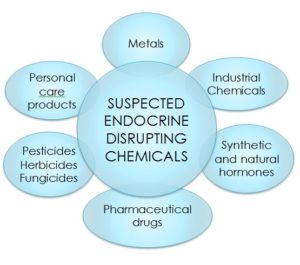Reasons Your Food Could Be Disrupting Your Hormones
Reasons Your Food Could Be Disrupting Your Hormones
As with all things in wellness, balance is key — diet, exercise, and of course hormones. Hormones control everything from your fertility to your metabolism, mood, appetite, and even heart rate. Our habits contribute to keeping them in balance.
What you put in your body every day can be a huge contributor to hormone imbalances. Contact us at NY Health so we can work with you to keep your hormones in balance – and here are some ideas to get you started.
Preservatives
Just because a food is considered “healthy” doesn’t mean you’re protected from hormone disruptors. The oils from whole grains, breads, and crackers can go rancid, so preservatives are often added to (attempt to) keep them fresh. Preservatives disrupt the endocrine system by mimicking estrogen and competing with naturally occurring estrogen, which can cause weight gain, low thyroid function, and lessened sperm count. Unfortunately, some preservatives such as butylated hydroxytoluene do not have to be listed on nutrition label.
In general, and we preach this to our family and pts every day – always eat healthy! It is best to eat as many whole, unprocessed foods as possible and consider buying bread from bakeries and eat fresh foods with a shorter shelf life to avoid added preservatives.
Phytoestrogens
Phytoestrogens—natural compounds found in plants—are present in many foods including fruits, vegetables, and some animal products. Soy, some citrus fruits, wheat, licorice, alfalfa, celery, and fennel have higher amounts of phytoestrogens. Phytoestrogens may affect your body in the same way as naturally produced estrogen—but there’s a lot of controversy around phytoestrogens and the positive or negative health effects. A number of experts have cited differing options. Since there’s conflicting information avoid consuming soy products in excess, like exclusively drinking soy milk.
Pesticides & Growth Hormones
Foods themselves generally do not disrupt hormones in a negative way. However, pesticides, glyphosate (a herbicide), and added growth hormones in dairy and animal products can bind to the hormone receptor in a cell and block your body’s naturally occurring hormones from binding, causing an altered response within the body.
Certain herbicides can be found – for instance – in soy crops and there is often a residue on soybeans that could be problematic for people who consume high quantities of soy milk. Eating too many phytoestrogens treated with glyphosate could decrease sperm count and affect levels of testosterone and estrogen.
Even some organic farmers use pesticides. However, organic produce tends to be grown with less toxic pesticides. Make sure to wash (and possibly soak for 10 minutes in baking soda and water) fruits and veggies. Try to buy animal and dairy products from local farms.
Alcohol
There has been much in the news lately about consuming any alcohol. Alcohol can have a profound effect on both the female and male reproductive systems. Chronic use of alcohol disturbs communication between your body’s systems, including the neurological, endocrine, and immune systems. It can result in a physiological stress response that can present as reproductive problems, thyroid problems, changes in your immune system, and more.
Alcohol consumption can affect sex drive and testosterone and estrogen levels, which could lower fertility and interfere with menstrual cycles. Most studies indicate that if you do drink, to drink in moderation.
Plastic
And yes, avoid using plastic straws when possible Recycling and buying reusable items have a big impact — and your hormones will also thank you. BPA and BPS, found in plastic bottles and in the lining of cans, are endocrine disruptors.
There are also phthalates in plastic wrap and food storage containers. Studies have shown that they can cause premature breast development and block thyroid hormone function, which regulates metabolism as well as heart and digestive functions. You might want to consider using a stainless-steel water bottle.

